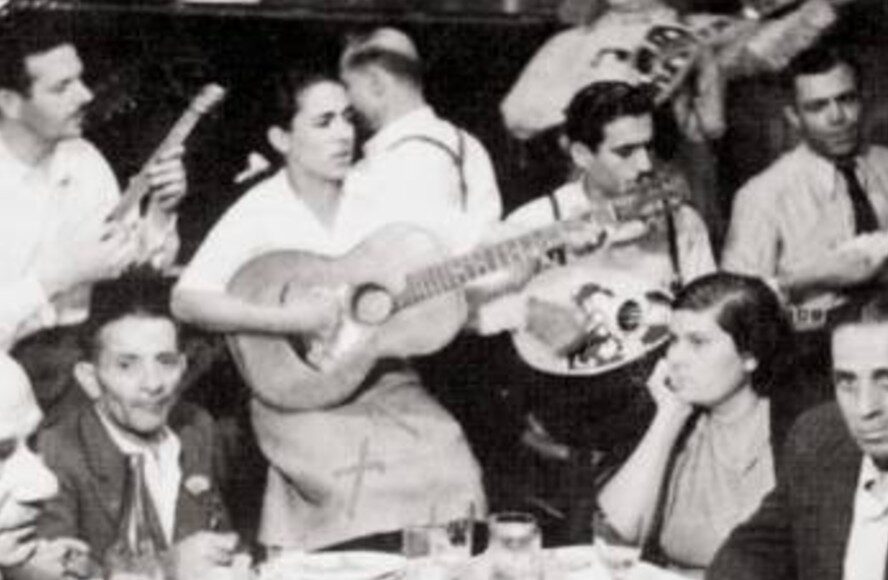One of Greece’s most successful singers in the mid 1900’s, Sotiria Bellou was highly regarded for her impeccable voice, accompanied by her rebetiko skills.
She was born on August 22, 1921 in the village of Halia in Chalkida. She was named after her beloved grandfather, Sotiris Papasotiriou, who was a priest in Schimatari.
Sotiria decided to become a singer at age 17 when she saw the movie “The Refugee Girl” with Sofia Vembo in the cinema. After her parents objected her decision, she decided to head off alone to Athens. There she met and married Vangelis Trimouras, a bus inspector.
Their marriage unfortunately only lasted six months after Sotiria was thrown in Averoff prison for throwing vitriol on Vangelis’ face. In the Court of Appeal, her sentence was reduced from 3.5 years to 6 months and she was released.

Sotiria spent the entire period of the war and the years of the Occupation under difficult conditions and doing various jobs. Among other things, she sang for pocket money in various taverns, with a guitar she had bought in the meantime.
After the liberation, playwright Kimon Kapetanakis discovered her in a tavern of the Exarchates and introduced her to his friend Vassilis Tsitsanis. The rebetiko man was excited by her voice and suggested that they enter the studio together.
The success of her first recordings with the unforgettable Tsitsanis (“Cloudy Sunday”, “Ta Kavourakia”, “When you drink in the tavern”, “Have a little patience”) established her as a folk singer, while in the years 1948 – 1955 she was sought after top composers.

Se collaborated with Giannis Papaioannou (“Go back to life first”, “Make courage my heart”, “Open, open”), George Mitsaki (“The sailor”, “The extinguished lantern”) and Apostolos Kaldara (“I said to erase the old ones”).
In 1966, she collaborated with contemporary art singers, earning a reputation among the new generation. She played in popular centres, Plaka bars, as well as in big concerts and other cultural events.
In March 1993 she faced serious health problems. She was immediately admitted to hospital and diagnosed with severe respiratory failure and pulmonary emphysema. Shortly after, she was diagnosed with pharyngeal cancer.
She lost her voice and two days before her 76th birthday, on August 27, 1997, and took her last breath at the Metaxa hospital in Piraeus.
Sourced By: San Simera
